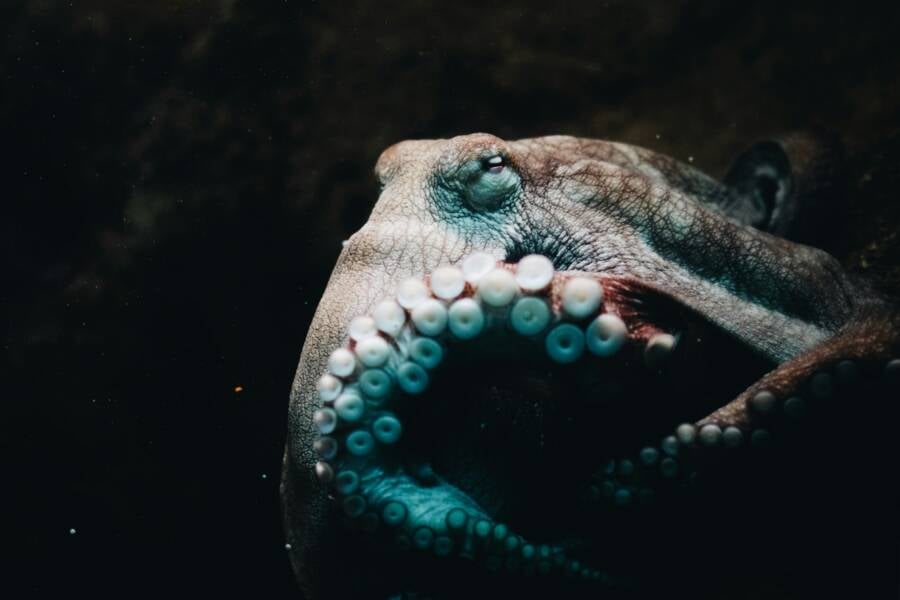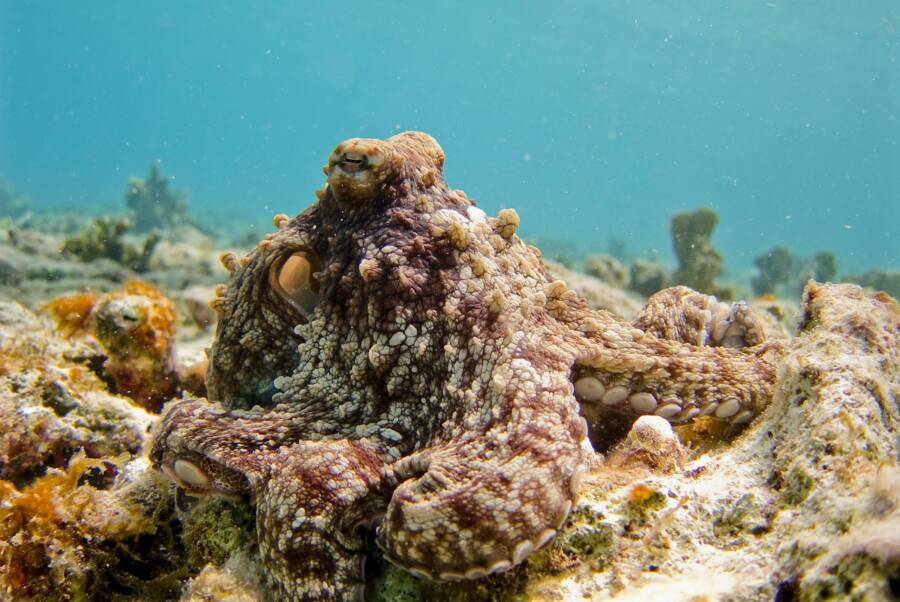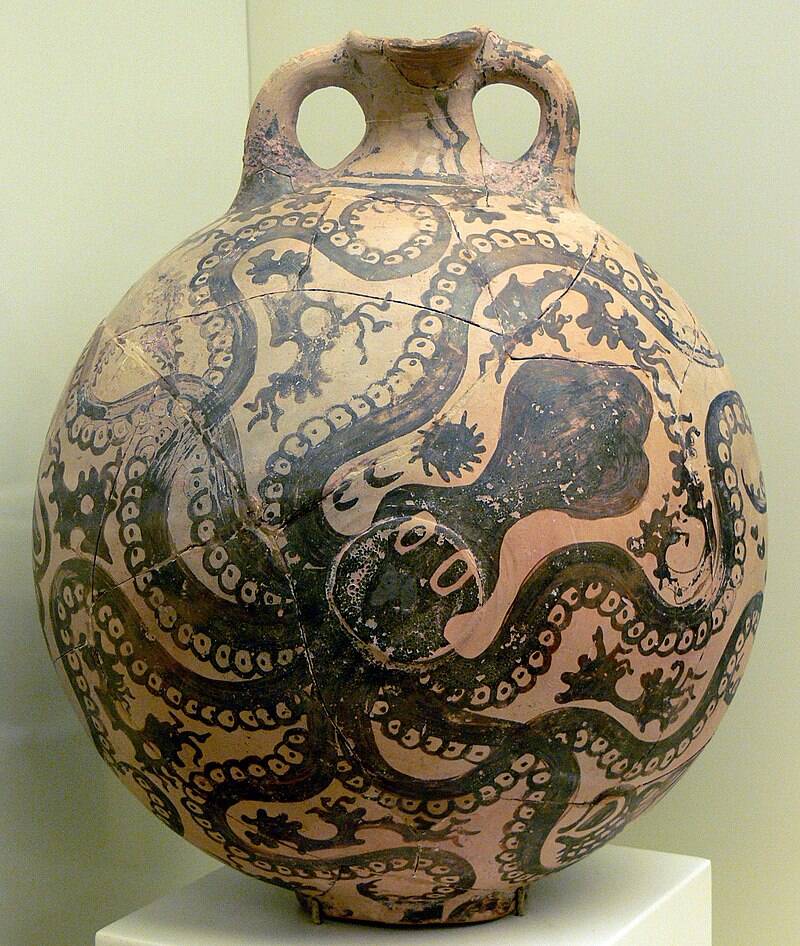Oxford researcher Tim Coulson suggests that octopuses, with their exceptional intelligence, adaptability, and problem-solving skills, could evolve into a civilization-building species if humans were to go extinct.

UnsplashThe octopus is one of the most intelligent creatures on Earth — so intelligent that one researcher believes they could succeed in building civilizations if humans were to be wiped out.
University of Oxford professor Tim Coulson has proposed a fascinating idea: if humans were to go extinct, octopuses could potentially rise as the next civilization-building species to dominate planet Earth.
In his 2024 book The Universal History of Us, Coulson explored the evolution of humans and animals while speculating on which species might come to prominence on Earth in the future. And with their exceptional intelligence, adaptability, and problem-solving skills, octopuses seem to be the most likely candidates to thrive in a post-human world, according to Coulson.
Octopuses possess advanced cognitive abilities, including tool use, camouflage, problem-solving, and communication. These traits, combined with their unique anatomy and dexterity, make them highly adaptable to changing environments and conditions that even humans and other advanced mammals are not likely to survive.
Although Professor Coulson’s theory is speculative, it has sparked meaningful discussions about the evolution of Earth’s creatures and which species might rise up after humans are gone.
University Of Oxford Researcher Claims Octopuses Could Build Civilizations In A Post-Human World

University of OxfordTim Coulson, a professor in the Department of Biology at the University of Oxford.
In 2024, Oxford professor Tim Coulson released his book The Universal History of Us, an analysis of human and animal evolution.
While writing the book, Coulson wondered which creatures could potentially replace human niches and become the most influential species on Earth. While such creatures would not be likely to create a civilization similar to the ones humans have built, they would have their own versions that would be uniquely tailored to their strengths as a species.
Asking himself this question, Professor Coulson briefly considered humans’ closest relatives, the Great Apes. However, given their strong similarities to human beings, these apes would likely meet their end alongside humans in the event of an extinction scenario.
“Even if some primates did endure, they would encounter significant challenges: their population sizes are small, they are restricted to a few forest habitats and have slow growth and reproduction rates,” Professor Coulson explained to The European.
So then, what type of creature would be most likely to replace humans? According to Professor Coulson, the answer is the octopus:
“Octopuses are among the most intelligent, adaptable, and resourceful creatures on Earth. Their ability to solve complex problems, communicate with one another in flashes of colour, manipulate objects, and even camouflage themselves with stunning precision suggests that, given the right environmental conditions, they could evolve into a civilization-building species following the extinction of humans.”
The Incredible Intelligence And Abilities Of The Octopus

UnsplashA brown octopus with full active camouflage.
These eight-limbed marine creatures have roamed Earth’s oceans for more than 500 million years.
Depictions of octopuses date as far back as 1900 B.C.E. One early example is a Bronze Age Minoan vase with a large illustration of an octopus dating to 1500 B.C.E.

Public DomainThe Minoan vase with an octopus design.
Across many cultures and eras, the octopus has been a symbol of power, dominance, sexual prowess — most famously seen in Japanese shunga — and danger. This may stem from human encounters with deadly venomous octopuses, such as the blue ringed octopus.
Meanwhile, the Greek philosopher Aristotle was the first to mention octopuses’ color-changing abilities. Subsequent writers and researchers discovered that the octopus possessed several remarkable abilities, including limb regeneration and strategic thinking that manifests in the use of tools and the manipulation of fish to improve hunting outcomes.
“In a world where mammals dominate, octopuses remain an underappreciated contender,” Professor Coulson stated. “Their advanced cognition, tool-use, and ability to adapt to changing environments provide a blueprint for what might emerge as the planet’s next intelligent species after humans. Some individuals even escape from their tanks at night in some research centers, visiting those of their neighbors believe it or not.”
Given their impressive mental capabilities and dexterity resulting from their lack of a skeleton, the octopus is a strong contender for the species most likely to form a new civilization after humans.
“These qualities could allow them to exploit new niches and adapt to a changing planet, especially in the absence of human influence,” Professor Coulson explained.
“It’s important to remember that these are just possibilities, and that it’s impossible to predict with any degree of certainty how evolution will unfold over extended periods. But could octopuses replace humans – and potentially also primates – if they were to die out? Absolutely.”
Next, dive into the story of the dumbo octopus, the small octopus with big ears that lives four miles below the sea. Then, read about the blue-ringed octopus, one of the deadliest creatures on the planet.





